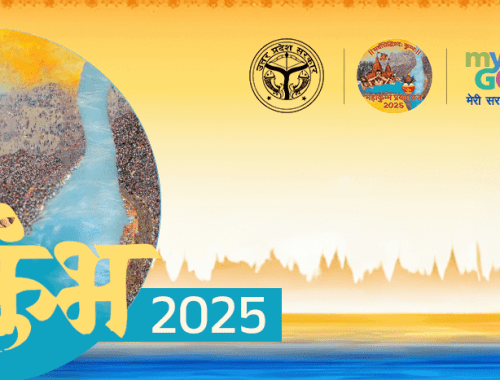
Turkey and Azerbaijan: The New Maldives? India’s Boycott Over Pro-Pakistan Stance Raises Concerns
In recent weeks, Turkey and Azerbaijan have found themselves in the spotlight for all the wrong reasons, with many Indians calling for a boycott due to these countries’ pro-Pakistan stance. This move is drawing comparisons to the Maldives boycott a few years ago, when tensions between India and the island nation led to a decline in Indian tourist arrivals. Today, it seems that Turkey and Azerbaijan are facing a similar fate.
The Boycott Movement Grows Against Turkey and Azerbaijan
The ongoing conflict between India and Pakistan has fueled widespread anger in India, especially after Turkey and Azerbaijan voiced their support for Pakistan’s position. In response, many Indians have rallied behind the call for a boycott. Leading travel agencies, including EaseMyTrip, Cox & Kings, and Pickyourtrail, have suspended all travel packages to Turkey and Azerbaijan, following the lead of the Travel Agents Association of India (TAAI), which has advised all agencies to halt promotions of these countries.
Social media platforms are buzzing with the hashtag #BoycottTurkey, with many citizens expressing their dissatisfaction over the pro-Pakistan stance, particularly in light of India’s concerns about terrorism. This boycott has extended beyond tourism, with calls for the suspension of trade and cultural exchanges with these nations.
India’s Firm Stance Against Terrorism
India has always maintained a strict no-tolerance policy towards terrorism, and this recent boycott is a reflection of the nation’s commitment to safeguarding its security. While every country has its own foreign policy, India’s priority remains the safety of its citizens. Countries that support or harbor terrorists compromise national security, and India has made it clear that such actions won’t go unchallenged.
The India-Pakistan issue is not just political but deeply rooted in national security concerns. The support extended by Turkey and Azerbaijan to Pakistan, which India accuses of sponsoring terrorism, has led to this backlash from Indian citizens. The message is simple: terrorism should never be supported, and no travel destination should ever come at the cost of security.
The Economic Impact: Turkey and Azerbaijan’s Revenue Loss
Turkey and Azerbaijan have long been popular travel destinations for Indians. In fact, in 2024, nearly 330,000 Indians visited Turkey, contributing significantly to the country’s tourism revenue. However, with the ongoing boycott, both countries are now facing the potential loss of this lucrative market. The impact on tourism revenue could be severe, as Indian travelers who once flocked to these destinations are now shifting their attention to other countries like Armenia and Greece, which are perceived as more aligned with India’s interests.
This decline in Indian tourists could hit the tourism industry in Turkey and Azerbaijan hard, affecting hotels, tour operators, and other sectors dependent on foreign visitors.
Travel Comes and Goes, But National Security Stands Firm
While travel destinations change over time, one thing that remains constant is the importance of national security. No destination, no matter how popular, should ever be prioritized over the safety of a nation’s citizens. India’s stance against countries that support terrorism is not about holding grudges; it is about standing firm in defense of national security.
Turkey and Azerbaijan, once favored by Indian tourists, now face the consequences of their diplomatic decisions. Like the Maldives, these countries will have to contend with the economic fallout of their actions. In the long run, the impact on tourism could be significant, but India’s focus will always be on its commitment to fighting terrorism and protecting its people.
Also Read: Indian travel destinations
Takeaway: India’s Policy on Terrorism Will Always Prevail
In a nutshell, while travel preferences may shift and new destinations may rise and fall in popularity, India’s commitment to national security and a no-tolerance stance on terrorism will always remain steadfast. As countries like Turkey and Azerbaijan face the consequences of their pro-Pakistan stance, it is a reminder that national interests, including the fight against terrorism, should never be compromised for tourism.
Whether Turkey and Azerbaijan recover from this boycott or not, the key takeaway is clear: India will always prioritize its security, and no tourism destination is worth compromising on this principle.
Frequently Asked Questions (FAQs)
1. Why are Indians boycotting Turkey and Azerbaijan?
Indians are boycotting Turkey and Azerbaijan due to their support for Pakistan, particularly following India’s recent military operation, “Operation Sindoor.” The backlash stems from India’s strong stance against terrorism, with both countries’ support for Pakistan seen as undermining India’s security.
2. What impact does this boycott have on Turkey and Azerbaijan?
The boycott is expected to significantly affect tourism in Turkey and Azerbaijan, as Indian travelers make up a large portion of their tourist arrivals. Major travel agencies like EaseMyTrip, Cox & Kings, and Pickyourtrail have suspended bookings to these countries, leading to potential revenue losses in the tourism sector.
3. How did the boycott of Maldives compare to the current situation with Turkey and Azerbaijan?
The Maldives faced a similar boycott from India a few years ago over political issues. Now, Turkey and Azerbaijan are facing the same situation due to their support for Pakistan. Just like the Maldives, the decline in Indian tourist arrivals could lead to economic consequences for both countries.
4. What is India’s policy on terrorism and how does it relate to the boycott?
India maintains a strict no-tolerance policy towards terrorism. The support shown by Turkey and Azerbaijan for Pakistan, which India accuses of sponsoring terrorism, has led to the current boycott. India prioritizes its national security, and any support for terrorism is not acceptable.
5. How much revenue do Turkey and Azerbaijan get from Indian tourists?
In 2024, over 330,000 Indian tourists visited Turkey, making it a significant source of revenue. The boycott may lead to a sharp decline in Indian tourist arrivals, impacting the tourism industry in both countries, which relies heavily on foreign visitors.
6. What countries are Indians choosing instead of Turkey and Azerbaijan?
As part of the boycott, Indian tourists are redirecting their travel plans to countries like Greece and Armenia, which are seen as more aligned with India’s geopolitical interests. These nations are now emerging as alternatives to Turkey and Azerbaijan.
7. Can the boycott affect the diplomatic relations between India, Turkey, and Azerbaijan?
While the boycott primarily targets the tourism industry, it could have a broader impact on diplomatic and trade relations. The backlash from Indian citizens may lead to further strain in political and cultural exchanges between India, Turkey, and Azerbaijan.
8. What is the long-term effect of the boycott on Turkey and Azerbaijan’s tourism industry?
The long-term effects of the boycott could be significant, as India has been a major source of tourism revenue for both countries. If the boycott continues, it could lead to a reduction in foreign investments, decreased revenue for local businesses, and a shift in the global perception of these countries as tourist destinations.
Khushi Jha
I am Khushi Jha, a proud alumna of Delhi University with a degree in History and Political Science. My fascination with the events that have shaped our world drives me every day. Currently, I am pursuing my Master’s in History, diving even deeper into global dynamics and the incredible heritage of India. I firmly believe that India's rich heritage deserves wider recognition. I strive to bring its stories to the forefront, ensuring they are celebrated and acknowledged on a global stage. I have written extensively across various niches, including fashion, health, lifestyle, real estate, hospitality, amongst others. In my free time, you’ll find me immersed in books, both fiction and non-fiction, or simply enjoying some much-needed rest.
You May Also Like

Major Archaeological Developments in India: What’s Happening in 2025
August 28, 2025
Is Telangana’s Name Fading From History? 600-Year-Old Rock Inscription That Needs Saving
September 1, 2025


